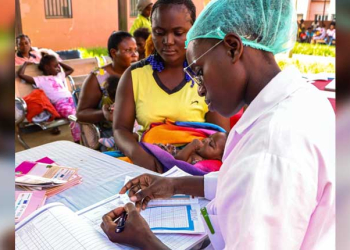Kabul: A survey by Gallup in Afghanistan shows the highest level of suffering measured for any country since 2005.
The survey conducted by the Gallup Management consulting company indicates that “nearly all Afghans (94 per cent) rated their lives poorly enough to be considered suffering” since the Taliban-led Islamic Emirate came to power in the country of around 40 million in August last year, TOLO News reported.
Based on Gallup’s findings, suffering among women has increased, as 96 per cent women rated their lives poorly enough to be considered suffering.
The survey says that the drop in daily income of the Afghans and poverty forced the people to leave the country.
According to Gallup, 96 per cent of Afghan women and 92 per cent men are suffering, while 82 per cent suffer from lack of access to shelter and food. As many as 75 per cent women are suffering from being deprived of their rights, while 56 per cent people are seeking to leave the country.
The survey put the rate of poverty at more than 95 per cent in the country since the fall of the former government.
The UN Development Programme (UNDP) in Afghanistan has expressed concern over the poor economic situation of the Afghan people, saying that millions of people in the country are facing economic challenges.
According to UN figures, 23 million people in Afghanistan are currently starving and 95 per cent of Afghans do not have enough food to eat three times in 24 hours, TOLO News reported.
Afghanistan is rapidly descending into one of the worst humanitarian crises in living memory amid rampant starvation, a healthcare crisis marked by child malnutrition, and the collapse of essential services since the Taliban took over the country last year, RFE/RL reported.
The situation initially prompted generous donor pledges from the international community in an effort to fend off large-scale death and destruction.
But the escalating war in Ukraine — which has prompted the exodus of more than 1 million civilians into neighbouring European countries — is now diverting international attention from the equally dire situation in Afghanistan, the report said.
Afghanistan, one of the most aid-dependent countries in the world, rapidly slid into a desperate humanitarian crisis after losing most international funding and humanitarian assistance after the Taliban seized power in August last year.
A marked decrease in trade and an enduring drought magnified the losses, even as countries pledged renewed funding and aid and looked for ways to deliver them without propping up the Taliban, the report said.
But that aid has been slow to arrive, and the US and UN sanctions against senior Taliban leaders have complicated the country’s economic situation.
Individuals and organisations are encountering difficulties in wiring money into Afghanistan, where banks are teetering on the brink of collapse.
(IANS)




















